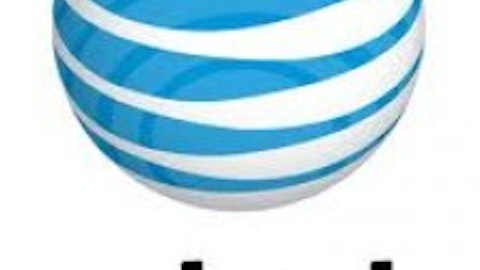The takeover battle between Softbank Corp (USA) (OTCMKTS:SFTBF) and DISH Network Corp (NASDAQ:DISH) is intensifying, as both suitors are continuing their efforts to take control of Sprint Nextel Corporation (NYSE:S). The latest move has been made by Softbank. The Japanese carrier has urged banks not to extend financing to the satellite provider for the Sprint deal. On the other hand, Dish’s Ergen expressed the urgency of the Sprint acquisition by saying that the deal is so critical for Dish, that he might consider putting the company up for sale if Sprint’s acquisition falls through.
What about Sprint’s preference?

Preferring Dish over Softbank is like adding ‘a football player to a baseball team’
The third largest U.S. carrier is mulling over DISH Network Corp (NASDAQ:DISH)’s $25.5 billion counter-offer against Softbank Corp (USA) (OTCMKTS:SFTBF)’s $20.1 billion bid. The Colorado-based satellite company’s Chairman says that a Dish-Sprint merger would lead to a cost synergy of $11 billion, as they have similar marketing departments and other business units that would help them cut costs. Other than this, Dish has also acquired wireless spectrum that Sprint could put into use to bolster its network-building process. However, Softbank Corp (USA) (OTCMKTS:SFTBF)’s President, Masayoshi Son, argues that DISH Network Corp (NASDAQ:DISH)’s spectrum cannot be used for existing devices and, therefore, isn’t valuable. In addition, Son also doubts about the cost savings that Ergen claims.
But, this is not what Sprint Nextel Corporation (NYSE:S) is worried about at the moment. The question bothering the carrier is: how is Dish planning to accumulate finances to meet its $25.5 billion takeover bid for the telecom provider? Dish said that it would use $8.2 billion of its own cash and raise $9 billion additional debt. Further, to convince the Kansas carrier that Dish has a financing source, the latter arranged Jefferies Group LLC (NYSE:JEF) to fund the deficit that it would have in acquiring Sprint.
Other than the financing issue, Sprint’s board is also concerned about the huge debt burden that DISH Network Corp (NASDAQ:DISH) would add to the merged entity’s balance sheet. In addition, Sprint isn’t confident about the combination synergies and cost cutting of $11 billion that Ergen is claiming. Even the Japanese suitor has raised questions about the synergies between a satellite and mobile company. DISH Network Corp (NASDAQ:DISH) wants to diversify into the mobile wireless industry, as its core satellite TV business is fading and facing tough competition from fellow player, DIRECTV (NASDAQ:DTV). The company brings no relevance, experience, or expertise to Sprint. So, a combination with Dish is meaningless. In Son’s words, it’s like bringing “a football player to a baseball team.”
A deal with Softbank Corp (USA) (OTCMKTS:SFTBF) could bring more certainty to Sprint’s future outlook
Softbank’s combination synergies are more real
In a meeting with Sprint Nextel Corporation (NYSE:S)’s investors, Softbank’s Son said that he estimates a saving of $2 billion between 2014 and 2017, soon after which the savings would rise to $3 billion. He said that the Sprint-Softbank merger would be more beneficial and cost effective, as the combined company would be able to pool the costs of buying wireless equipment and handsets. The combination would also help Sprint cut down its capital expenditure by 32%-36%. In addition to this, Softbank’s $8 billion capital infusion into Sprint would help the latter recover from the disaster it has been in post the Nextel acquisition.
DISH Network Corp (NASDAQ:DISH) may be highly focused to acquire Sprint, but Softbank Corp (USA) (OTCMKTS:SFTBF) is also doing all that is required to strike its deal with Sprint.
Softbank urges banks not to finance Dish
Softbank has asked investment banks not to agree to fund Dish’s rival offer. The Japanese company has a 33% stake in Alibaba Group Holding Limited, which is expected to conduct its IPO as early as this year.
The Alibaba Group Holding Limited IPO is one of the most highly-awaited technology deals in which several investment banks are yearning to play a crucial role to earn huge underwriting and advisory fees. So, in case an investment bank aids Dish in pooling finances, it would lose the chance of playing any role in the public offering of the Chinese E-commerce player.
As a result, Dish is experiencing difficulties arranging the $9 billion debt that it needs to fulfill its deal with Sprint. Several Wall Street banks, including Bank of America Corp (NYSE:BAC), Citigroup Inc (NYSE:C), Deutsche Bank AG DB Gold Double Long ETN (NYSEARCA:DGP), and UBS AG (ADR) (NYSE:UBS), have rejected to finance Dish due to their relationship with Softbank Corp (USA) (OTCMKTS:SFTBF) and their expectation to play an essential role in the Alibaba IPO.
Sprint is caught between the two aggressive bids, but it should prefer Softbank. Not only is the company an expert in the wireless business, but it is financially sound as well. Softbank’s financial backing would help Sprint fund its acquisition bid for Clearwire Corporation (NASDAQ:CLWR) and own its vast spectrum mass. One of the prime reasons why Sprint has become the most coveted takeover target for both Softbank and Dish is because of its relationship with Clearwire Corporation (NASDAQ:CLWR). Sprint made a $2.97 per share bid to acquire the rest of Clearwire so that the company would have complete control over the latter’s prized spectrum mass. Both Softbank and Dish have expressed a desire for Clearwire’s spectrum.
The Clearwire deal
A proxy advisory firm, Institutional Shareholder Services (ISS), has recommended that Clearwire shareholders vote for the deal on May 21. Minority shareholders, including Crest Financial and Aurelius Capital, have voiced their opinions and are against the deal, claiming that it grossly undervalues Clearwire Corporation (NASDAQ:CLWR)’s worth. However, ISS says that Sprint has fairly valued Clearwire, and that its shareholders should be in favor of the deal as it is the best alternative available for Clearwire. The regional carrier will not be able to run as a stand-alone company and needs Sprint’s assistance. Another influential proxy advisory firm, Glass Lewis & Co, has opposed the deal and isn’t convinced that Sprint is the best strategic alterative for Clearwire.
The bottom line
Sprint is caught in a tussle between Softbank and Dish. However, I would recommend Softbank’s proposal to the company. Dish has not even made proper arrangements to finance its higher bid. Also, its synergies of $11 billion seem unreal. Softbank’s proposal, on the other hand, looks more organized and well planned. The deep-pocketed carrier’s capital injection would also be crucial to conclude Sprint’s Clearwire deal. On the other hand, Dish’s offer would add to the combined entity’s debt and further stress the balance sheet. Softbank and Sprint make a better match.
The article Why Softbank Scores Better Against Dish originally appeared on Fool.com is written by Rajesh M.
Copyright © 1995 – 2013 The Motley Fool, LLC. All rights reserved. The Motley Fool has a disclosure policy.


